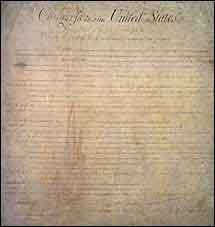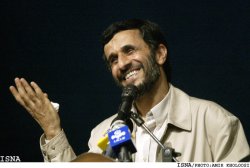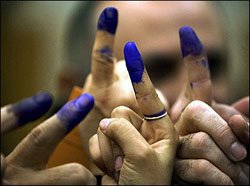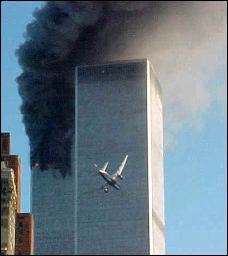Caroline Glick is Senior Fellow for Middle Eastern Affairs at Frank Gaffney’s Center for Security Policy. (Regular listeners of the Hugh Hewitt Show are familiar with Mr. Gaffney, Hugh’s weekly guest whose slot is always introduced and ended with the theme music from “Patton.”) Ms. Glick, who lives in Israel, is also a columnist with the Jerusalem Post.
In her column this week,
linked here, Ms. Glick lauds U.S. Ambassador to the United Nations John Bolton as the person who “may very well be Israel's greatest friend in the US government.” As Ms. Glick reports, Mr. Bolton recently was the keynote speaker at the annual dinner of the Zionist Organization of America (ZOA). While acknowledging some recent “positive steps” improving Israel’s standing in the United Nations, Ambassador Bolton cautioned that "to say that Israel can be said to be treated as a normal nation at the UN would be a statement of fantasy." In particular, Ambassador Bolton noted that recent remarks by Iranian President Mahmoud Ahmadinejad, calling for Israel to be wiped off the map, drew “almost no attention at the UN."
A recent event sponsored by the United Nations, which Ambassador Bolton discussed at length, perhaps best illustrates the truth of his main thesis. November 29 is the anniversary of the passage in 1947 of the General Assembly Resolution that approved the partition of the British Mandate in Palestine into two states, a Jewish State and an Arab State. The area identified in the General Assembly’s partition resolution for the future Jewish State was only about 10% of the region that League of Nations designated for a Jewish State when it granted the mandate to Great Britain in 1922 (Britain promptly having carved off 80% of the Mandate territory to create the Kingdom of Transjordan (now Jordan), as a consolation prize to the Bedouin Hashemite clan, for the loss of Arabia to the House of Saud). Nonetheless, the Jewish Agency, which under the Mandate was the official representative of the Jews in Palestine, immediately accepted the partition, and declared the existence of the State of Israel the following May. In contrast, the Arabs in Palestine and the surrounding countries rejected the partition resolution, made war on the newborn State of Israel (with disastrous results for Palestinian Arabs), and continued their rejection of the partition of Palestine and the creation of Israel for the next 58 years, to this very day. More than any other factor, that is why no Palestinian Arab state exists today.
So how does the UN observe the anniversary of the partition resolution each November 29? Does it honor the spirit of compromise in the resolution, commemorate the birth of Israel (a UN member State) and express hope for the birth of a Palestinian Arab State that will live beside Israel in peace?
Well, actually, November 29 is the official United Nations Day of Solidarity with the Palestinian People, marked this year by an event at UN Headquarters, attended by Secretary General Kofi Anan and the Presidents of the Security Counsel and General Assembly, who, as Ms. Glick writes and Ambassador Bolton described to the ZOA:
“sat on a stage against the backdrop of a map of the Middle East in which Israel was mysteriously replaced by a country called ‘Palestine.’ Not one of the UN leaders, or any of the other participants in the event, saw fit to protest the fact that Israel had been literally ‘wiped off’ this official UN map.”
According to Bolton, "I think we need to use this example, this piece of evidence about a fundamental flaw within the UN itself. This is not simply a mistake that the three men made not speaking about the map. They didn't speak about the map because they didn't see anything unusual. And in fact there isn't anything unusual about it in the context of the UN. We need to take this instance and go beyond what our normal reaction might be - to slam the people involved for not criticizing the map, for not walking out. We need to say this is a pivot point to change the culture at the UN."
Sad to say, the U.S. Ambassador to the United Nations has been far more outspoken concerning this outrage than the Israeli Foreign Ministry or its UN Ambassador. Ms. Glick notes that this follows a pattern of Israeli diplomatic obsequiousness since the Oslo Accords. One recent example is last week's vote by the Diplomatic Conference of all state parties to the Geneva Conventions that will pave the way for Magen David Adom (Red Star of David) to finally become a member of the International Red Cross and Red Crescent Society, but only if it participates displaying a bizarre “Red Diamond” instead of the Red Star of David. The Wall Street Journal wrote on its editorial page, "Israeli diplomats celebrate this deal as a great victory. We'd hate to see a defeat." The editorial continued, "If Israeli relief workers around the world or army medical corps must hide their identity and wear some 'New Age' symbol to be accorded the protection of international law, one might consider this as just another example of the gradual delegitimization of Israel as a Jewish state."
However, as Ms. Glick memorably notes, “Sadly, as in the case of Israel's treatment at the UN, what we see here is yet another example of Israeli diplomats mistaking spit for raindrops.”
Please read the entire article, which is linked above. I am particularly interested in how Hedgehog readers will react to an idea floated by Ms. Glick for private Israeli citizens to arrange for the families of U.S. military personnel serving in Iraq to live in Israel while their family members are deployed in Iraq. The objective would be that the proximity of the families would allow the American military personnel to visit their families perhaps every month, instead of once a year.
Ralph B. Kostant























